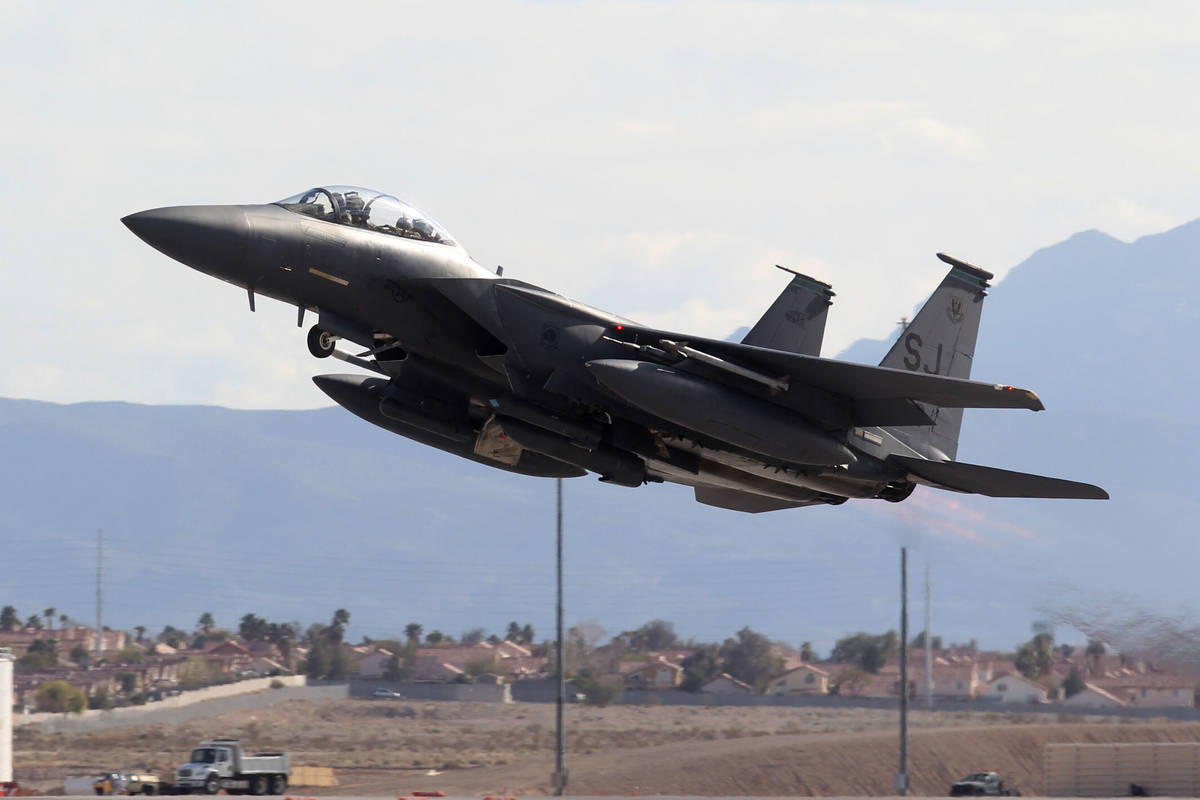Nevada projects included in annual defense bill
WASHINGTON — A $742 billion defense bill before Congress contains a number of measures sought by Nevada, including a provision to block nuclear weapons testing and language that would keep military aircraft bombing ranges in their current boundaries in the north and central areas of the state.
The House passed the defense bill on a 335-78 vote earlier this week. Nevada Democrats Dina Titus, Susie Lee and Steven Horsford, as well as Republican Mark Amodei, voted to pass the legislation.
The Senate is also expected to pass the legislation with a bipartisan majority as early as this week.
But President Donald Trump has threatened to veto the bill over language that would strip Confederate names from military installations, and because lawmakers didn’t include language to repeal legal liability protections for social media companies.
Republican leaders, such as Sen. James Inhofe, R-Okla., chairman of the Armed Services Committee, said he expects he’ll have the votes to override a presidential veto .
Inhofe said he spoke with the president earlier this week and was disappointed that he would not drop his veto threat on a bill important to ongoing military operations and Pentagon missions.
“I’m disappointed, because it is really critical. So I’m disappointed,” Inhofe told reporters.
Nevada priorities
The National Defense Authorization Act includes a number of measures sought for by the Nevada congressional delegation, such as a 3 percent across the board pay increase for military personnel.
Nevada is home to three major military installations: Nellis Air Force Base, Creech Air Force Base and Naval Air Station Fallon. There are roughly 10,300 military personnel, and 7,000 more who are active in the military reserves in the state, according to Department of Defense records.
Efforts by the Air Force and Navy to expand bombing and training areas in southern Nevada and the central part of the state were not included in the final bill.
Also not included in the bill were Trump’s request for a resumption of nuclear armament testing, and funding for storing defense-related nuclear waste at the Yucca Mountain repository, which has not been built due to local opposition.
Trump dropped his push for Yucca Mountain this year. Nevada was critical swing state in the presidential election.
Sen. Jacky Rosen, D-Nev., said the bill “excludes funding for explosive nuclear testing in Nevada and storing defense nuclear waste at Yucca Mountain.”
Nevada lawmakers, including Sen. Catherine Cortez Masto, a Democrat, and Amodei, had worked to develop a compromise on expanded land for military training. Cortez Masto said last week she was glad the expansion proposals were shelved.
Lee said extending the status quo on military bombing ranges and stopping the expansion into sensitive ecological and cultural areas was one of the most important issues in the defense bill.
“This extension supports our military and jobs for Nevada servicemembers, while also preserving our public and tribal lands across the state,” Lee said.
In addition to seeking to ban nuclear testing, Titus also helped remove language in the bill to eliminate 161 technician positions with the Nevada National Guard.
Horsford said the bill would ensure paid parental leave for all federal employees and secure supplies and materials critical to Covid-19 response.
The legislation also authorizes spending $29 million for projects at Fallon, $16 million for projects at the Nevada National Security Site and an increase in procurement for the MQ-9 “Reaper” drones stationed at Creech AFB.
Contact Gary Martin at gmartin@reviewjournal.com or 202-662-7390. Follow @garymartindc on Twitter.























